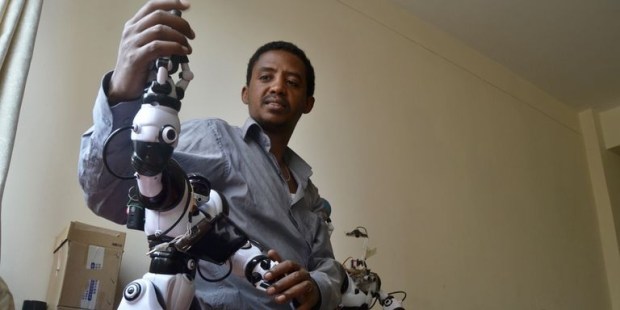By Hruy Tsegaye
My one-month trip in Nigeria, on behalf of iCog Labs, was full of drama. Yet, here, I am allowed to write only the ‘not too exciting’ part of it and unfortunately, this does not include ‘the horse, the girl, and I’ incident on Elegushi beach.
iCog Labs was invited to attend the Disruptive Africa Expo and I arrived in Lagos Muruthalah Mohammed International Airport midst a very hot and sunny day. August 21 is usually a rainy day in Nigeria; it is the rainy season there. However, on that particular day, the sun was out with all her kinship.
Thinking that it would be rainy, I had packed two jackets and a sweater; my punishment for complaining about Addis Ababa’s recent climate change via a cruel jock for I had never got the chance to wear those. Nigeria is hot through and through and you will feel hot while standing in the middle of the rain wearing nothing but a t-shirt.
After passing through the usual boring boarding process, I am now standing in front of the sign that says “Welcome to Lagos”
Read More



 The rapid technological progress of our time is obvious to anyone with an observing eye. The changes that happened in the past few years were not even dreamt a few decades back. If we get the chance to bring back a person who died fifty years ago, he wouldn’t know what to do with a lot of the changes and honestly our dead friend would have been bewildered beyond words. I have been blessed to see the changes firsthand since many of the vagaries occur in my generation, and I have seen instruments get more portable and more efficient through time.
The rapid technological progress of our time is obvious to anyone with an observing eye. The changes that happened in the past few years were not even dreamt a few decades back. If we get the chance to bring back a person who died fifty years ago, he wouldn’t know what to do with a lot of the changes and honestly our dead friend would have been bewildered beyond words. I have been blessed to see the changes firsthand since many of the vagaries occur in my generation, and I have seen instruments get more portable and more efficient through time. Immortality, rather sound like a Sci-Fi character’s ability, but modern science says this is no longer true. In this exponentially growing technology, the linear life of humans, being a forever one, may not be long coming after all.
Immortality, rather sound like a Sci-Fi character’s ability, but modern science says this is no longer true. In this exponentially growing technology, the linear life of humans, being a forever one, may not be long coming after all.


